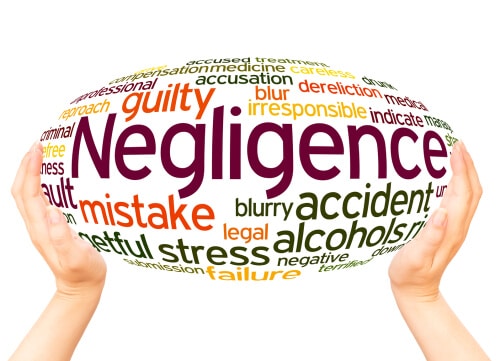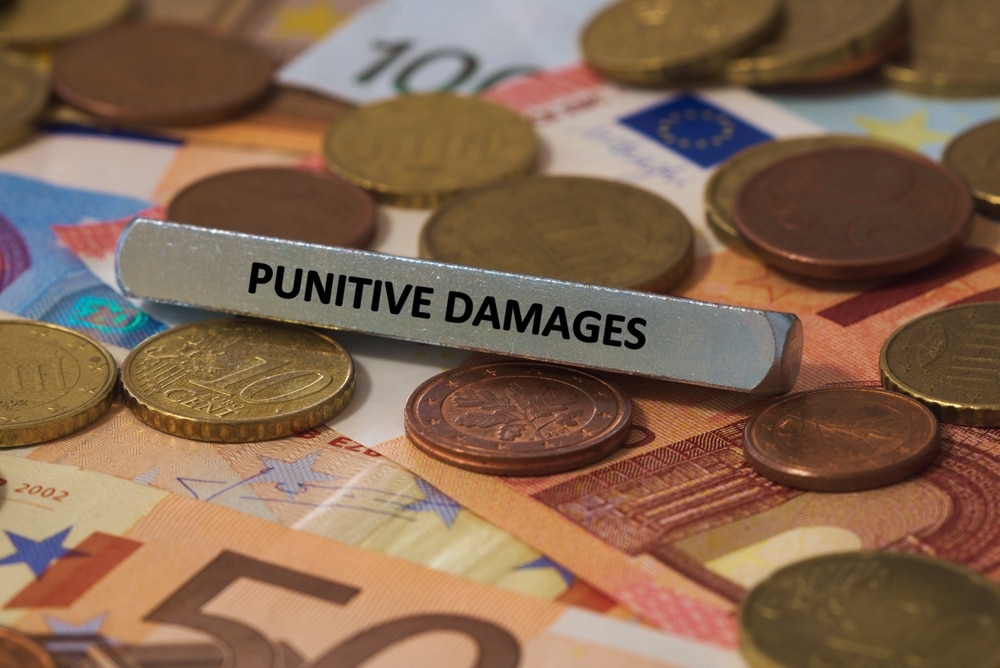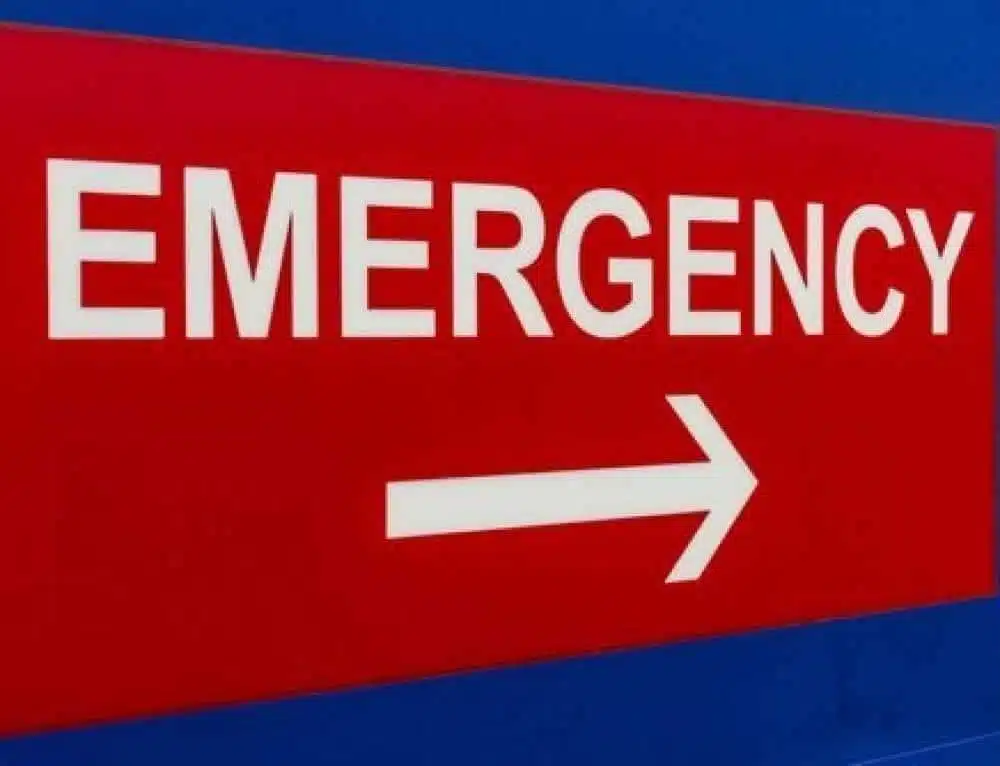If you or someone you care for has sustained catastrophic injuries from an accident that was not your fault, calling a North Carolina Catastrophic Injury Attorney should be your next move.
The Bishop Law Firm represents personal injury clients in North Carolina, and we do not get paid unless we win. Call us today for a free case review, (919) 615-3095, or start online now.
North Carolina Personal Injury Law
Negligence, contributory negligence, the statute of limitations, and what a victim can recover are essential laws that can affect a victim's recovery.

Negligence
For a North Carolina injury victim to recover, there must be negligence by the at-fault party.
Negligence is a failure to exercise the level of care that a reasonable person would have exercised under the same circumstances, resulting in harm or injury to another (FindLaw).
As an example, in North Carolina, all drivers are required to operate vehicles safely and obey traffic laws.
If a driver does not obey a traffic law (runs a stop light) and that failure to follow the law results in injury to others when they cause a car accident, negligence has occurred.
In auto accidents, police reports often determine fault (or negligence).
In other cases, negligence can be harder to establish.
Contributory Negligence
In addition to negligence on the part of the at-fault party, the injury victim must not have contributed to their injury.
North Carolina is a contributory negligence state, which means that for an accident victim to recover, they must not be at fault for their injury.
If two drivers both run stop lights and they have a car accident, the victim can not recover as their negligence contributed to their injury.
Contributory negligence can create unfair outcomes for victims, but unfortunately, it is the law in North Carolina.
Statute of Limitations
You have three years to file a personal injury lawsuit for an injury you sustained due to the negligence of another in a motor vehicle, premises liability, or medical malpractice accident.
If the victim was killed by the negligent party in the accident, the case becomes a wrongful death claim.
Wrongful death claims have a two-year statute of limitations (not three).
If you are injured while working, you may also have a NC Workers’ Compensation claim.
The North Carolina Industrial Commission governs workplace accidents.
What can a victim recover?
An injured person can recover damages in the form of medical expenses, pain & suffering, lost wages, as well as punitive damages (in some instances).

Medical Bills - Economic Damages
After a catastrophic injury, ongoing medical treatment and future medical treatment expenses should be included in any settlement.
Medical professionals and experts must be consulted when determining what future medical care is needed and the medical costs for said care.
Medical equipment and physical therapy are also compensable medical costs.
Read Medical Bills After NC Personal Injury
Lost Wages - Economic Damages
With life-altering injuries, work can cease, even being an option. The victim's inability to work will result in a loss of the victim's income for their recovery phase, and for some, that can mean life.
Lost income should account for the victim's earning capacity as well as the actual amount they earned before the accident.
Read Lost Wages and Earning Capacity
Pain and Suffering - Non-Economic Damages
In North Carolina, pain and suffering damages attempt to reimburse the victim for the physical pain and mental suffering (emotional pain) that a victim has to endure due to the injury they have sustained. If you break your leg, you will experience not only physical pain but also mental and emotional distress.
Read Pain and Suffering in NC Personal Injury Cases

Punitive Damages - Non-Economic Damages
Punitive Damages are awarded to punish a defendant for egregiously wrongful acts and to deter the defendant and others from committing similar wrongful acts.
The North Carolina statute goes further to say that one of the following aggravating factors must be present: fraud, malice, or willful or wanton conduct.
Punitive damages are fact-specific (think drunk driver who causes an accident that injures others).
What are Catastrophic injuries?
Catastrophic injuries are injuries that result in death, permanent disability, or serious injuries (spinal cord injuries, traumatic brain injuries, burn injuries, and crush injuries are examples) (via Wikipedia).
Catastrophic injuries take substantial time to heal, need extensive medical treatment, and the victim may never be physically or mentally the same again.
Common Catastrophic Injuries

According to the National Safety Council, in 2023, 222,698 people died in the United States from preventable injury-related deaths.
Of those deaths, motor vehicle accidents caused 44,762, and over 4,500 occurred at work.
The average economic cost per death was $1,952,000.00 and $167,000.00 per disabling injury (NSC Injury Facts).
According to the American Burn Association, in 2020, there were 698,555 burn-related insurance claims. Healing from severe burns can be devastating for injury victims.
There were over 69,000 TBI-related deaths in the United States in 2021 (per the CDC).
Some specific examples of catastrophic accidents we have seen would be motorcycle accidents in which the rider sustains a severe traumatic brain injury, a pedestrian who was hit by a speeding car and suffers a spinal cord injury, or a small vehicle vs. tractor-trailer truck accident in which the car driver sustained devastating injuries.
If you notice in these accidents, the victims are not protected from impact, which results in more serious (catastrophic) injuries.
However, any accident can, unfortunately, result in catastrophic personal injury under the wrong conditions.
Even in accidents involving similarly sized cars, victims can be severely injured due to speed and the location of impact.
Do you need a North Carolina Catastrophic Injury Lawyer?
Catastrophic injury cases usually involve extensive medical records, exorbitant medical bills, as well as severe financial losses to the victim and their family from missing work and the inability to work in the future.
Unfortunately, many insurance companies aim to minimize their payouts and expedite case closures to avoid incurring further medical expenses.
In catastrophic injury cases, victims must avoid these tactics to attain maximum compensation.
Future lost wages and medical expenses need to be calculated into your settlement with the insurance company before the case settles.
If something happens after settlement and the victim needs extensive medical treatment, there will be no way to recover.
A North Carolina Personal Injury Lawyer can help you and your family with a personal injury claim.
Gathering medical records, finding out from your doctor what future treatment you may need, calculating your lost wages, and providing facts during settlement negotiations with the insurance company are all essential steps to achieving the highest settlement possible.
If the insurance company is unwilling to accept liability or pay you fair compensation, a personal injury lawsuit may be your only recourse for a fair settlement.
Personal injury lawyers help navigate the legal process of a catastrophic injury claim so you and your family can focus on the victim’s recovery.
The Bishop Law Firm represents catastrophically injured victims in personal injury claims in Raleigh, Cary, Fayetteville, Durham, Rocky Mount, Wilson, Smithfield, Louisburg, Chapel Hill, Roanoke Rapids, and surrounding areas in North Carolina.
We do not get paid unless we win your case, and we offer free case reviews. Contact us today, (919) 615-3095! We wish you or your loved one a speedy recovery.


